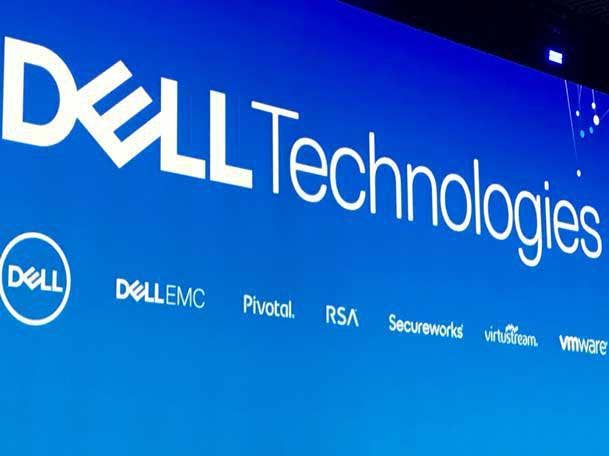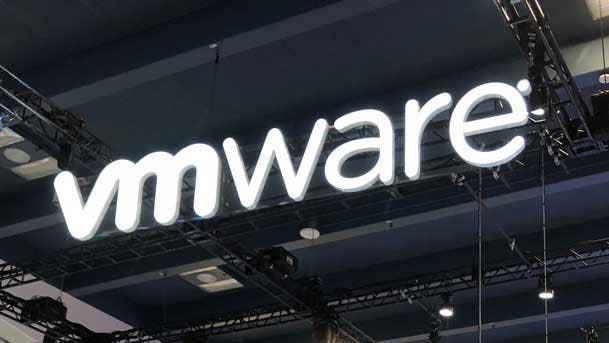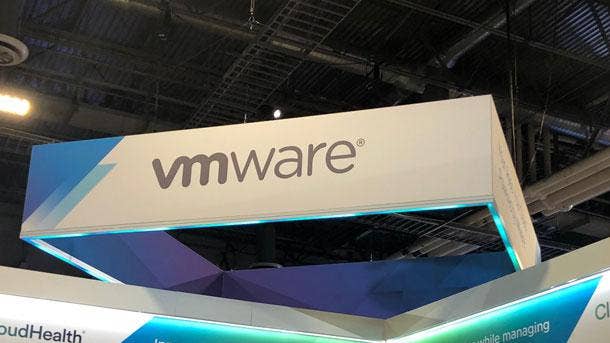5 Big Things To Know About Dell Selling (Or Buying) VMware
‘The Dell ownership structure has been an albatross around the VMware story and ultimately causes the stock to trade at a discount,’ says equity research analyst Daniel Ives of Wedbush Securities.

Dell And VMware: What Does The Future Hold?
News that Dell Technologies is considering spinning off its majority stake in VMware or buying the rest of the stake in the virtualization and cloud software superstar is sending shockwaves throughout the IT world.
The Round Rock, Texas-based $91 billion infrastructure giant currently owns an 81 percent stake in VMware, stemming from Dell’s blockbuster acquisition of EMC in 2016 for a historic $67 billion. The two companies are currently working with outside advisers to explore the two options of spinning off its stake in VMware or potentially buying the rest of the shares in the company, according to a report by The Wall Street Journal, which cited sources familiar with the matter.
Here are five things to know about the potential changes ahead for Dell Technologies and VMware.

ow400
A Spinoff Could Eliminate VMware ‘Albatross’
Dell spinning off its 81 percent stake in VMware, which it has held for the past four years, could eliminate what analyst Daniel Ives of financial investment firm Wedbush Securities calls the VMware “albatross.”
“The Dell ownership structure has been an albatross around the VMware story and ultimately causes the stock to trade at a discount,” said Ives in a recent note. “[This] dynamic would be removed if Dell ultimately decided to head down this path.”
Ives said if Dell did not own VMware, it would add $15 to $20 per share “right out of the gates” due to positive knee-jerk reactions from investors. He said the “soap opera” of the Dell and VMware ownership structure has been a “frustration point for investors.”
Dell’s 81 percent stake in VMware has been valued at approximately $50 billion.

No Plans To Sell Stake Because Of Tax Benefits
Dell Technologies Chief Financial Officer Tom Sweet (pictured) told investors at a conference last week that there were no plans to sell Dell’s 81 percent stake in VMware due to the tax benefits it receives, according to a note by Morgan Stanley equity research analyst Katy Huberty.
“While we are not aware of Dell’s plans nor has Dell confirmed that it is exploring options for its VMware stake, Dell’s recent public comments suggest the most likely path is the one that Dell is on -- continuing to focus on share gains, tighter integration across Dell Technologies assets, and de-levering,” said Huberty.
In a recent interview with CRN, Dell Technologies founder and CEO Michael Dell said jointly co-engineered solutions between Dell and VMware will “continue to grow and get better.”
“If you look at what we did with VxRail and VxRack, just as an interesting example, those two combined have generated more than $4.5 billion in orders since inception. We’ve actually been exceeding the ambitious targets that we set for ourselves there. Those solutions continue to grow and get better,” said Dell. “Now we have those with VMware Cloud Foundation, and we continue to enhance the combined solutions with the Dell Technologies Cloud, with Unifi ed Workspace, with our SmartFabric Director— the innovation engine is on high.”

Spinoff Would Boost VMware Valuation; Shares Could Reach $200
Dell spinning off its stake would boost VMware’s valuation by eliminating the “ownership discount” from what some see as “poor corporate governance,” said Jim Suva, senior analyst at global investment and financial firm Citigroup in a note.
Analyst James Fish of Piper Sandler said VMware shares could be worth more than $200 per share if Dell spun out its stake in the company. Fish said the sale would “remove governance overhang issues” and potentially drive a more than 25 percent multiple expansion.
“Dell is likely looking at capitalizing upon the strong market by potentially doing a secondary offering/block disposal with help of underwriters,” said Citigroup’s Suva.

Buying The Rest Of VMware
Other than spinning off its 81 percent stake in VMware, Dell is also reportedly exploring the option of buying the remaining stake in the company.
Although VMware co-engineers technology tighter with Dell than other vendor, a result of being part of the Dell Technologies family of businesses, it still has close and long standing technology integration partnerships with numerous Dell competitors such as Hewlett Packard Enterprise. Both Dell and VMware have said their current relationship doesn’t intrude upon VMware’s partnerships and business vision with competing vendors. However, having complete control of VMware could potentially change that stance.
Brad Reback, managing director for wealth management and investment banking firm Stifel Financial, said Stifel has expected Dell to buy the rest of VMware for quite some time.
“A spin-out of VMware makes little long-term sense for Michael Dell given the secular headwinds that Dell’s core hardware business faces,” said Reback in a note. “Additionally, according to the WSJ article, a tax-free spin of VMware could not be achieved until Sept 2021, about 15 months from now.”

Both VMware And Dell Stock Price Jump
After the news broke Tuesday night about a potential VMware spin off or remaining stake purchase by Dell, both companies’ stock jumped. Dell Technologies’ stock price soared 18 percent to $57.80 a share in after-market trading Tuesday, while VMware’s stock price jumped 9 percent to $162.80 a share.
As of Wednesday afternoon, Dell’s stock is currently trading up 6 percent at $52.19 per share, while VMware is trading up 2 percent at $153.17 per share.
Amit Daryanani, senior managing director of equity research for Evercore, said Dell has value that is not currently reflected in its share price, suggesting Dell may be worth roughly $80 per share.
“Our valuation suggests Dell could be worth a significant premium versus its current trading price but some of the factors that could be weighing down the company’s current valuation include: high net leverage; concentrated ownership (Michael Dell and Silver Lake); conglomerate discount; and corporate governance (limited voting rights),” said Daryanani in a note.